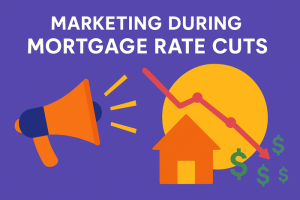Summary
This article highlights key compliance considerations for creating mortgage advertisements. It outlines how to meet regulatory requirements, avoid misleading claims, and maintain transparency to protect both lenders and clients. Adhering to compliance guidelines ensures ethical marketing practices and mitigates legal risks.
The best way to do this is through advertising. Yet, since mortgage lending is a very regulated industry. Mortgage advertising has laws that must be followed.
Many laws protect people from predatory lending. One of the ways that they do this is by limiting the types of advertisements sent to consumers. All advertisements for mortgage lending services must be non-discriminatory. Ads must also provide clear financial terms associated with their lending products.
Lending companies struggle to balance advertising and compliance, and it is challenging to be creative and informative at the same time. Other industries that are not as regulated can provide more engaging ads. If your mortgage lending company wants to keep giving quality ads, consider these three methods:
1. Craft Your Ad to Meet the Persona of Your Ideal Customer

Many mortgage companies got used to using Facebook to target their ads. They would use the demographics settings to reach people who earned a certain income.
Others would select specific age ranges or races, and these practices are illegal. Facebook redesigned its ad practices in 2020. Now mortgage lenders cannot use Facebook to attract particular buyers through ad settings.
While the Facebook limitations imposed on lenders can be frustrating, they serve a purpose and help keep lenders compliant with advertising regulations.
To attract new clients on Facebook, lenders must have a new strategy. One such method is to create ads based on your ideal customer. For example, if your ad is interesting to those in their 30’s or 40’s, those who are 18 will likely scroll right past.
2. Set up a Live Chat on Your Website
It’s become relatively easy to set up a live chatbox on a website. Many websites have one. If a customer has a question, they can ask it.
The live chat is an automatic pop-up that viewers see immediately after pulling up a website. Chatbox is a valuable tool that connects you directly with potential clients. It’s also compliant with advertising regulations since no customer discrimination is involved.
Customers who ask questions receive information about mortgage loans and homes available. They find out about loans they may qualify for.
3. Tailor Campaigns for Your Clients

Although ads must not discriminate against clients, that doesn’t mean you can’t tailor ads. You can create personalized email campaigns based on their needs and preferences.
For example, if you know, certain customers are looking for a VA loan. You can send them a message letting them know eligibility requirements. Your message can be educational — it doesn’t have to be promotional. This approach helps maintain a connection with the client while remaining legally compliant.
Need a Mortgage CRM?
If you are a mortgage broker or loan officer, you need help managing your customer relations. BNTouch’s mortgage CRM helps you to remain compliant while remaining in touch with clients.
Key Takeaways
- Adhere to Regulatory Standards
Ensure all claims in ads are truthful and compliant with industry rules.
- Avoid Misleading Language
Transparent messaging builds trust and prevents legal issues.
- Stay Updated on Guidelines
Regularly review advertising policies to ensure ongoing compliance.
Commonly Asked Questions
- Why is compliance critical in mortgage advertising?
Compliance ensures that advertisements meet legal standards, avoiding fines, lawsuits, or reputational damage.
- What regulations should loan officers consider when advertising?
Truth-in-Lending Act (TILA) guidelines and clear disclosure of terms are key requirements for compliance.
- How can lenders ensure ad compliance?
Using compliance review tools, working with legal advisors, and adhering to industry standards minimize risks.
- What are the risks of non-compliant advertising?
It can lead to legal penalties, loss of trust, and negative impacts on long-term business growth.
Contact us for a free demo today!





